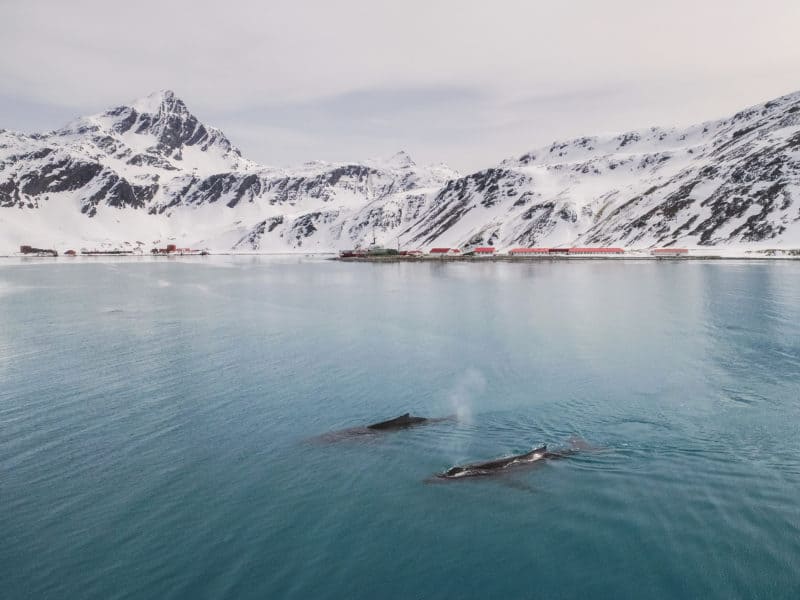A new study released by the British Antarctic Survey shows the welcome return of humpback whales to the waters around the sub-Antarctic island of South Georgia after a century of commercial whaling decimated their populations.
The study is published in the journal Endangered Species Research on Thursday this week and is being hailed as very good news for whale conservation.
South Georgia and the South Sandwich Islands is a British Overseas Territory in the southern Atlantic Ocean. Remote and inhospitable, they were previously part of the Falkland Islands, another British territory.
A team, led by British Antarctic Survey (BAS) focused on the large and charismatic southern right and humpback whales. Both species were heavily exploited by whaling; southern right whales primarily in the 1800s and humpback whales a century later.
Large groups reported since 2013
Since 2013, large groups of humpback whales have been regularly reported in South Georgia waters, confirming their return to this historical centre of whaling. Southern right whales have been sighted in the area for over 20 years and sightings remain steady over time, in contrast to the growing numbers of humpback whales.
South Georgia was a key whaling site from the early 1900s until the cessation of whaling, with over 170,000 whales killed in local waters.
Humpback whales were the first to be exploited (1904-1920), followed by fin and blue whales. The whaling industry collapsed at South Georgia in the 1960s, as whale numbers decreased and whales virtually disappeared from South Georgia waters.
“This is really positive news for humpback whales. Population surveys show that both humpback and southern right whales are slowly recovering from whaling in the Southwest Atlantic,” BAS whale ecologist and lead author, Dr Jennifer Jackson, said.
Future feeding trends monitored
“At South Georgia, it seems as if a small proportion of the southern right whale population feed here, while humpback whales have just started feeding here in large numbers recently. It will be interesting to see how these trends continue in the coming years, including variability between years.”
In 2018, a British Antarctic Survey boat expedition studied the population biology of southern right whales at South Georgia, to identify population linkages between South Georgia and the winter calving grounds off Brazil, Argentina and South Africa, to assess their feeding preferences, and to carry out a health check on individual whales, measuring their body condition.
The research program involved a number of institutions, including the Australian Antarctic Division and the University of Auckland.












